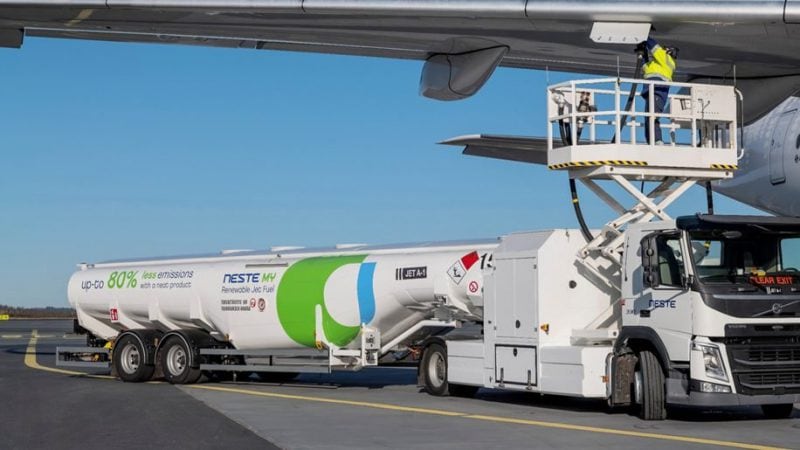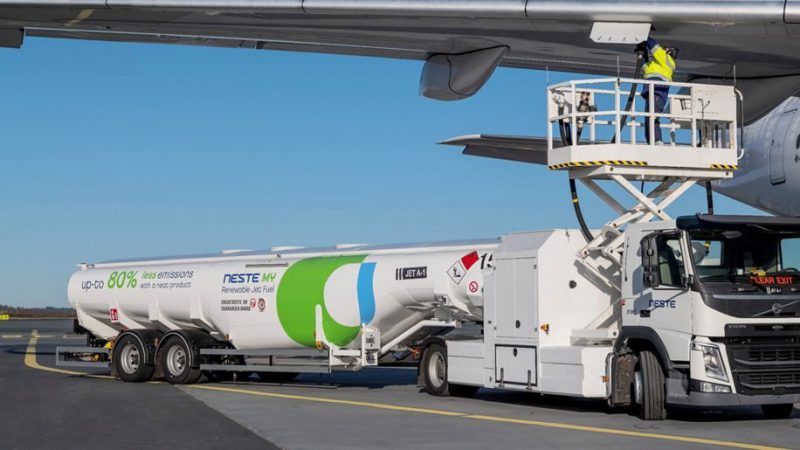Delta and Deloitte Sign Sustainable Aviation Fuel Agreement
Use of SAF would reduce carbon produced by Deloitte business travel by 1,000 metric tons
March 2, 2021

Delta Air Lines has announced an agreement with Deloitte, one of its corporate customers, to purchase enough sustainable aviation fuel (SAF) to “represent a lifecycle emissions reduction of approximately 1,000 metric tons of carbon dioxide,” according to the carrier.
The airline says using this much SAF is “equivalent to carbon sequestered by 1,306 acres of US forests or 756 football fields in one year.”
While the deal covers only ‘a portion’ of Deloitte’s business travel, Delta says the collaboration is “one of the first of what the airline hopes will be many significant achievements” for both “carbon reduction and removal and stakeholder engagement.”
In its “2020 Global Impact Report, Deloitte has committed to an ambitious target of being net zero by 2030.
According to the report, “All carbon emissions resulting from air travel in FY2019 were offset through the purchase of third-party-verified carbon credits, and the purchase of a combination of renewable energy or offsets to address all travel-related (air, auto, hotel, etc.) and all other energy-related FY2020 emissions is underway.”
Deloitte said its carbon-reduction goals set in FY2019 included an 11 percent reduction in business travel by FY2025.
“In the latter half of FY2020, the COVID-19 pandemic resulted in the cessation of business travel for Deloitte professionals and for many Deloitte clients. This unexpected forced grounding has opened up new examinations of how Deloitte does business while continuing to serve clients effectively.
“As the world emerges from the pandemic, Deloitte is rethinking some of the traditional ways in which it operates, particularly business travel. Deloitte leaders anticipate continuing to serve clients effectively and grow the business, while also reducing travel below pre-pandemic levels.”
Delta has entered into a supply agreement with Neste, “a leading producer of low emission, renewable fuel for aircraft,” for SAF made from “sustainably sourced, renewable waste and residue materials.”
Neste’s SAF can be added to traditional aviation fuel and so “offers an immediate way to directly reduce lifecycle greenhouse gas emissions from aviation.”
Currently, Neste’s annual capacity for the production of sustainable aviation fuel is 100,000 tons. With an expansion of its Singapore refinery underway, and “with possible additional investment into the Rotterdam refinery,” Neste says it will have the capacity to produce “some 1.5 million tons of SAF annually by 2023.”
A number of industry players are investing in sustainable aviation fuels, including United Airlines and Boeing, which has committed to producing 100 percent SAF-capable aircraft by 2030.
Delta says that SAF is “an important lever to reduce the lifecycle carbon emissions from aviation fuel, up to 80 percent when used in pure form compared to fossil jet fuel, and has great potential to scale.”
“This is just the beginning. We are grateful for Deloitte and our corporate customers and partners joining us on this important journey,” said Ed Bastian, Delta’s CEO.




